Understanding Communities: Why Contextualization matters
Case Study & Impact Report
For the Girls Program
with Rohingya adolescent girls in Kutupalong, Bangladesh
[go straight to the report here]
Overview: The Rohingya Crisis
The Rohingya are an ethnic minority from Rakhine State, Myanmar. Like several other ethnic groups in Myanmar, they have been victims of religious persecution and genocide at the hands of the Burmese military. For years, the diaspora has grown as Rohingya flee to neighboring countries in search for safety and opportunity. In August 2017, an outbreak of violence by the Myanmar military forced over 742,000 Rohingya to flee to neighboring Bangladesh. They now live in Kutupalong — also known as the World’s Largest Refugee Camp. There are currently over 1 million people living in Kutupalong with the vast majority being women and children. According to the UNHCR, 40% are under age 12.
When resources are scarce in an unstable environment, education tends to fall off the list of priorities. As a result, informal learning becomes the most flexible and ideal alternative for those living in a refugee camp.
Books Unbound
Books Unbound is a humanitarian startup creating culturally contextualized learning materials with the aim to promote informal education movements in refugee communities. We developed Rohingya-specific learning materials that can be used at home or in a learning center, child friendly space, or community center. As Rohingya is an unwritten language, we collaborate with linguists and translators to create a written form of their Rohingya language. We go through a verification process to ensure that the vocabulary we use is the most-widely understood for the focus community.
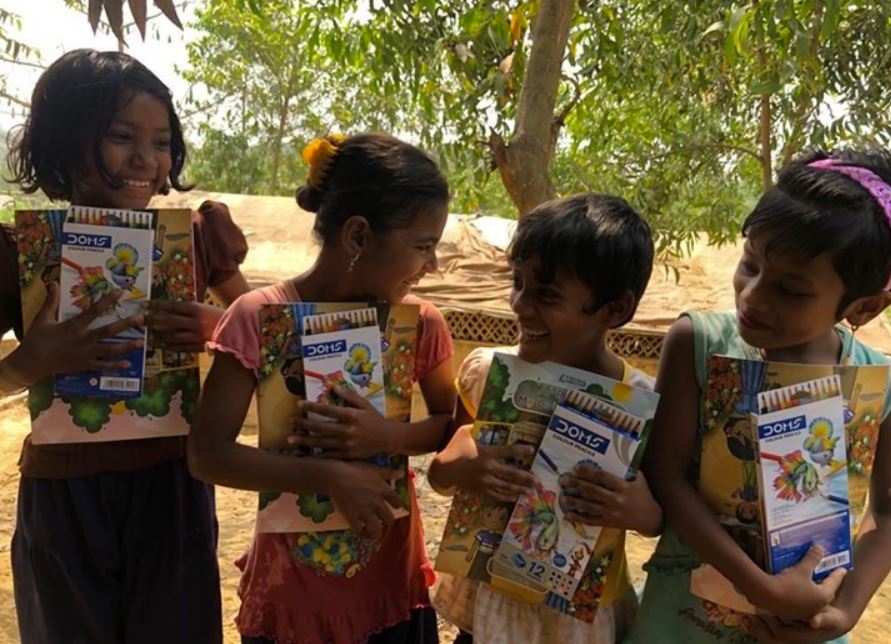
Coloring Book Program in Kutupalong, Bangladesh
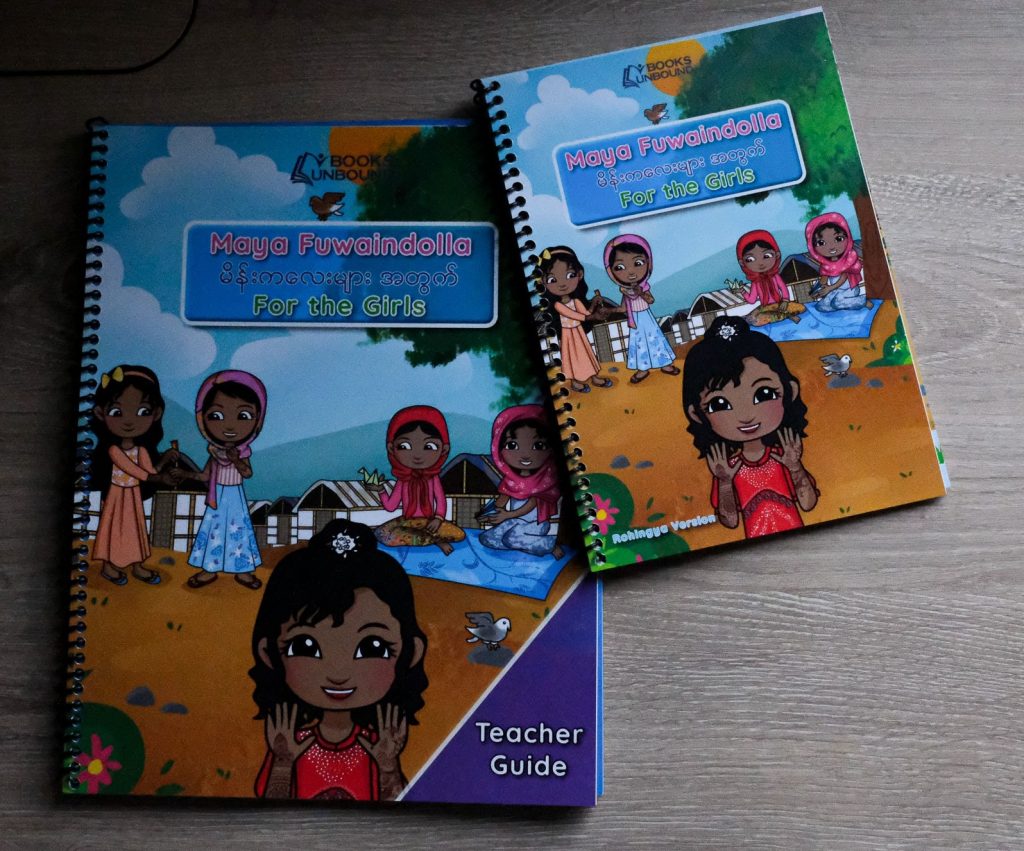
For the Girls student book & teacher guide
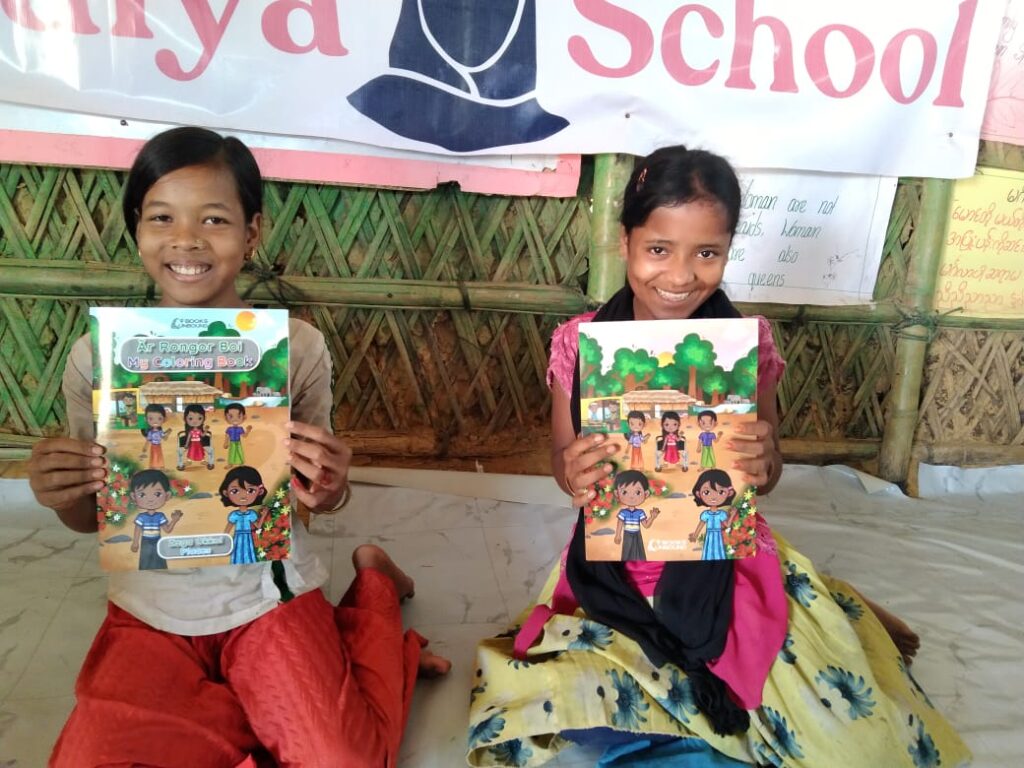
Students in our partner organization, Maiya School.
For the Girls Program
“Do you have a book with girls that look like us?”
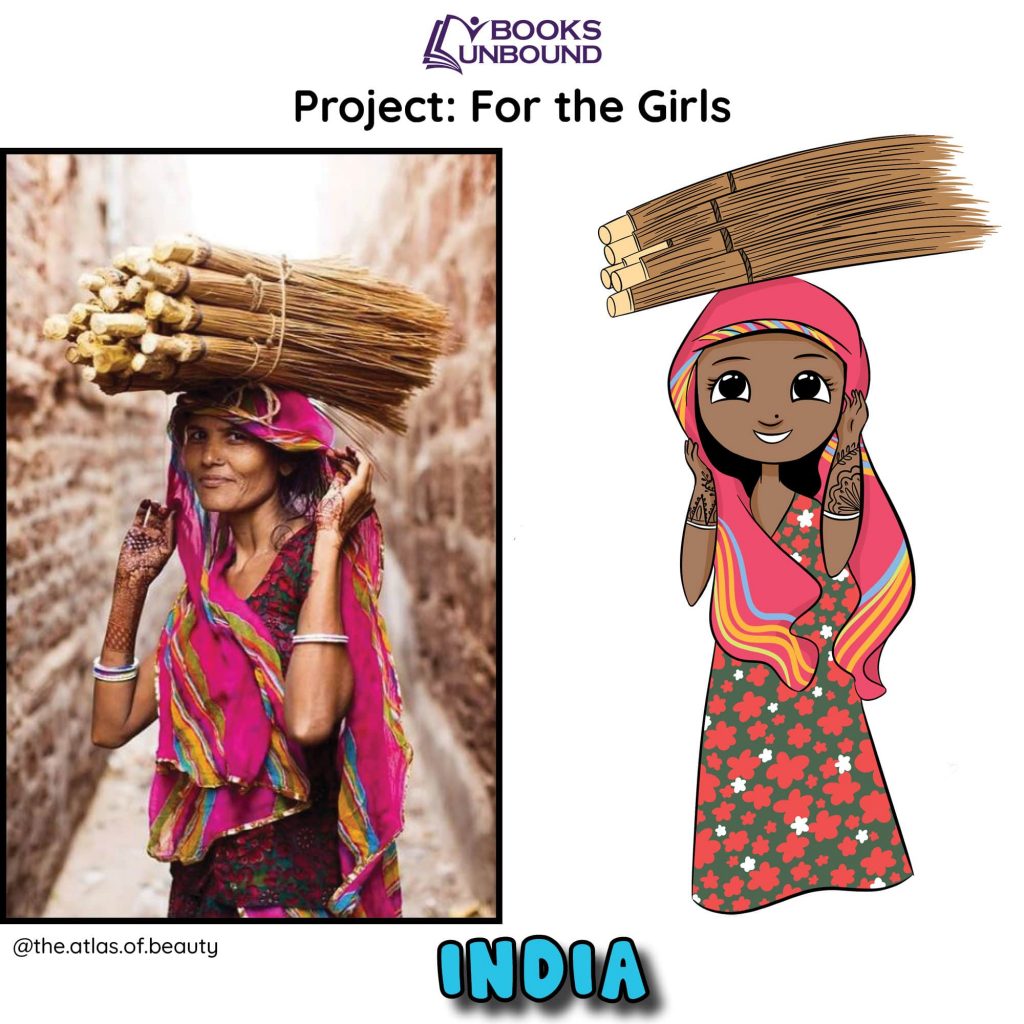
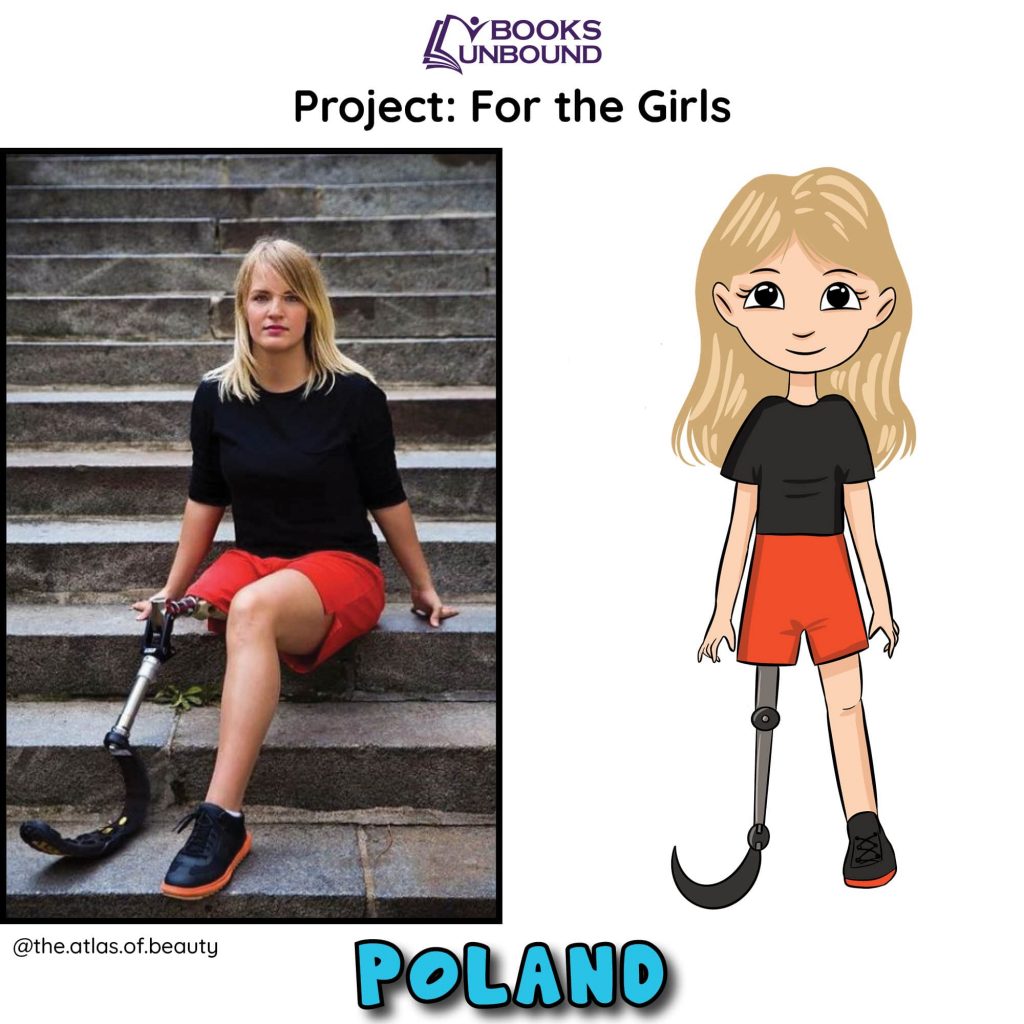
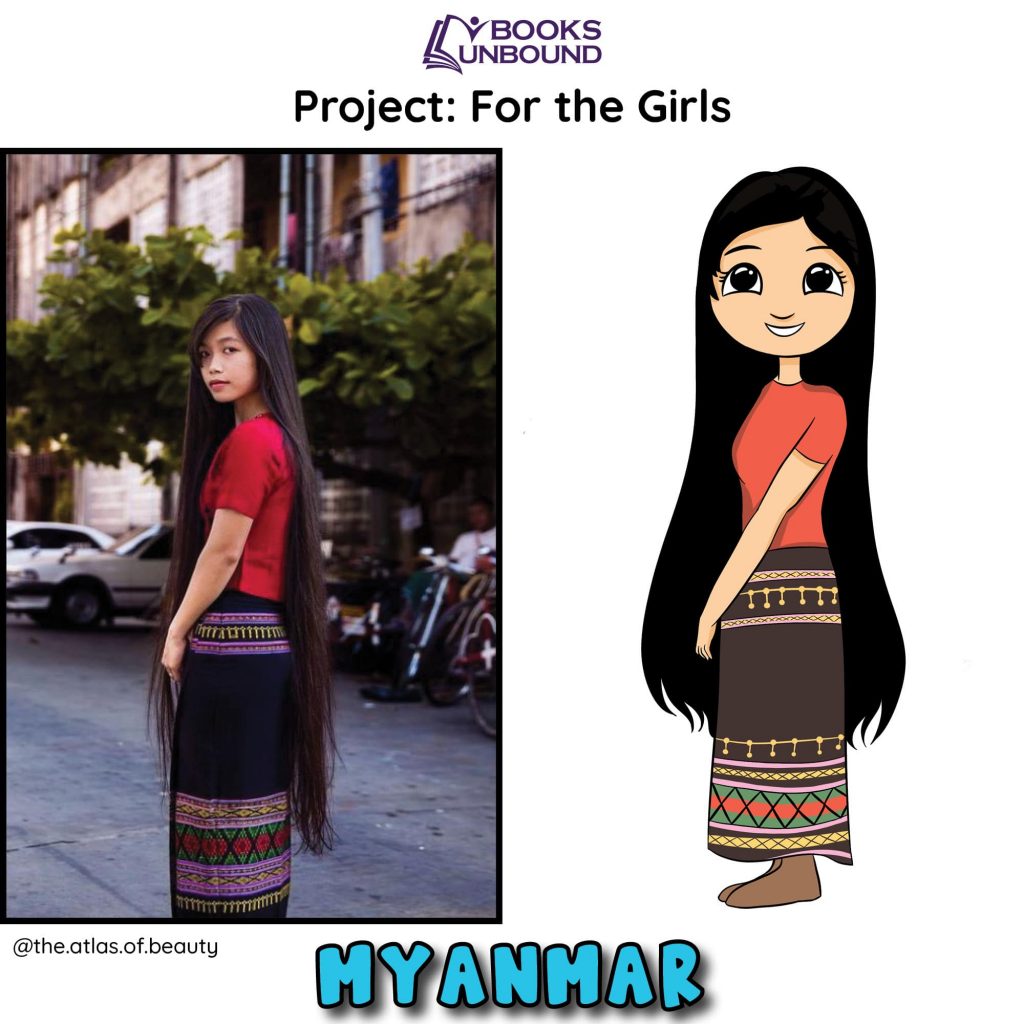
By girls, for girls. The For the Girls program was a dream project that became a reality in early 2021. Our international team of female artists designed this book for Rohingya adolescent girls as a resource to prompt important conversations for regarding women’s health, physical activity, and community-based work throughout all phases of life.
Along with basic female health practices, the book encourages creativity, innovation, and community-based work throughout all phases of life. The picture-based approach is designed to encourage girls to ask questions and spark conversation among their peers, regardless of their literacy level.
Understanding Communities: Why Contextualization Matters Report | For the Girls Program
Our For the Girls book and Teacher Guide are implemented through a grassroots program in the refugee camp in Kutupalong, Bangladesh. A trusted local community leader uses the resource to teach 20 girls in a class, gathering in an all-female space for 24 sessions over a one month period.
This case study looks at the impact of our resources while highlighting the perspectives and lived experiences of Rohingya adolescent girls. The report includes data collected on education and learning, physical and psychosocial wellbeing, hygiene and health, language and culture, and identified benefits of the program.
Books Unbound identified resilience, an eagerness to learn, and an ability to utilize support networks to mitigate the hardships of camp life. This has confirmed our belief in the importance of contextualized resources among refugee communities, able to preserve culture, celebrate strengths, while simultaneously addressing community-specific needs.
Please click on the PDF below to read the full report.
Note: This program is funded by private donors. If you like what we do and want to keep our For the Girls program going, please consider leaving a donation here.
Do you work with Rohingya girls?
We partner with organizations & individuals that work directly in the Rohingya community. If you’d like to start a Girls’ Program in your organization, contact us. We’d love to get you started!
